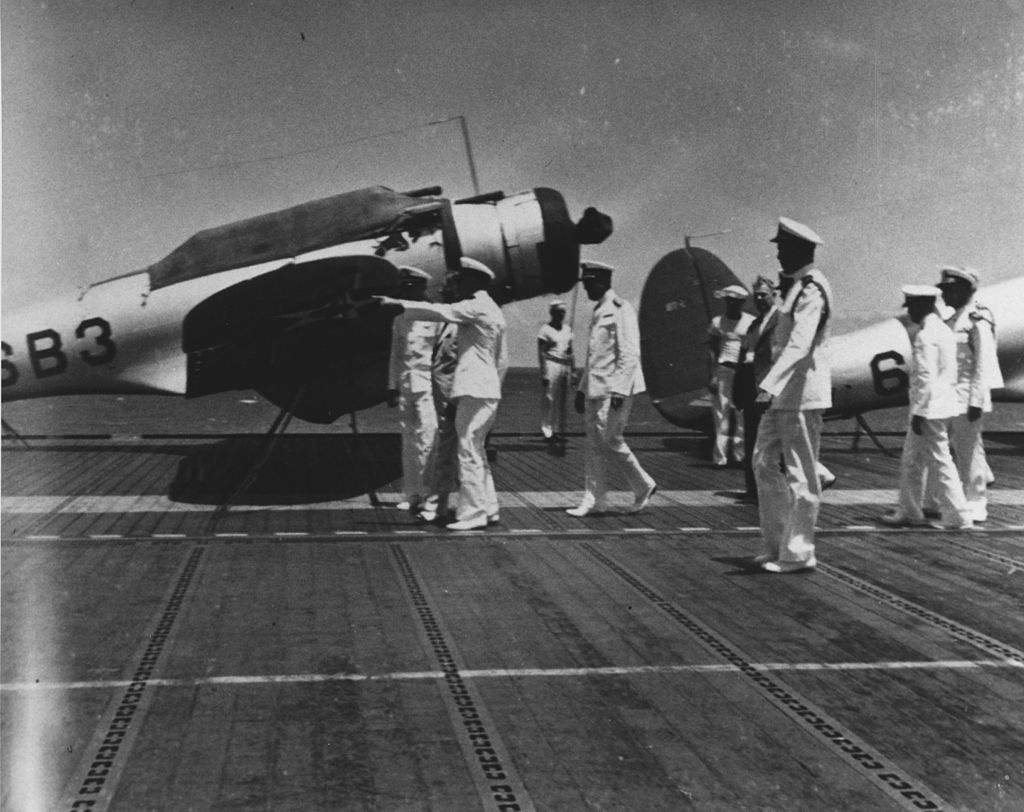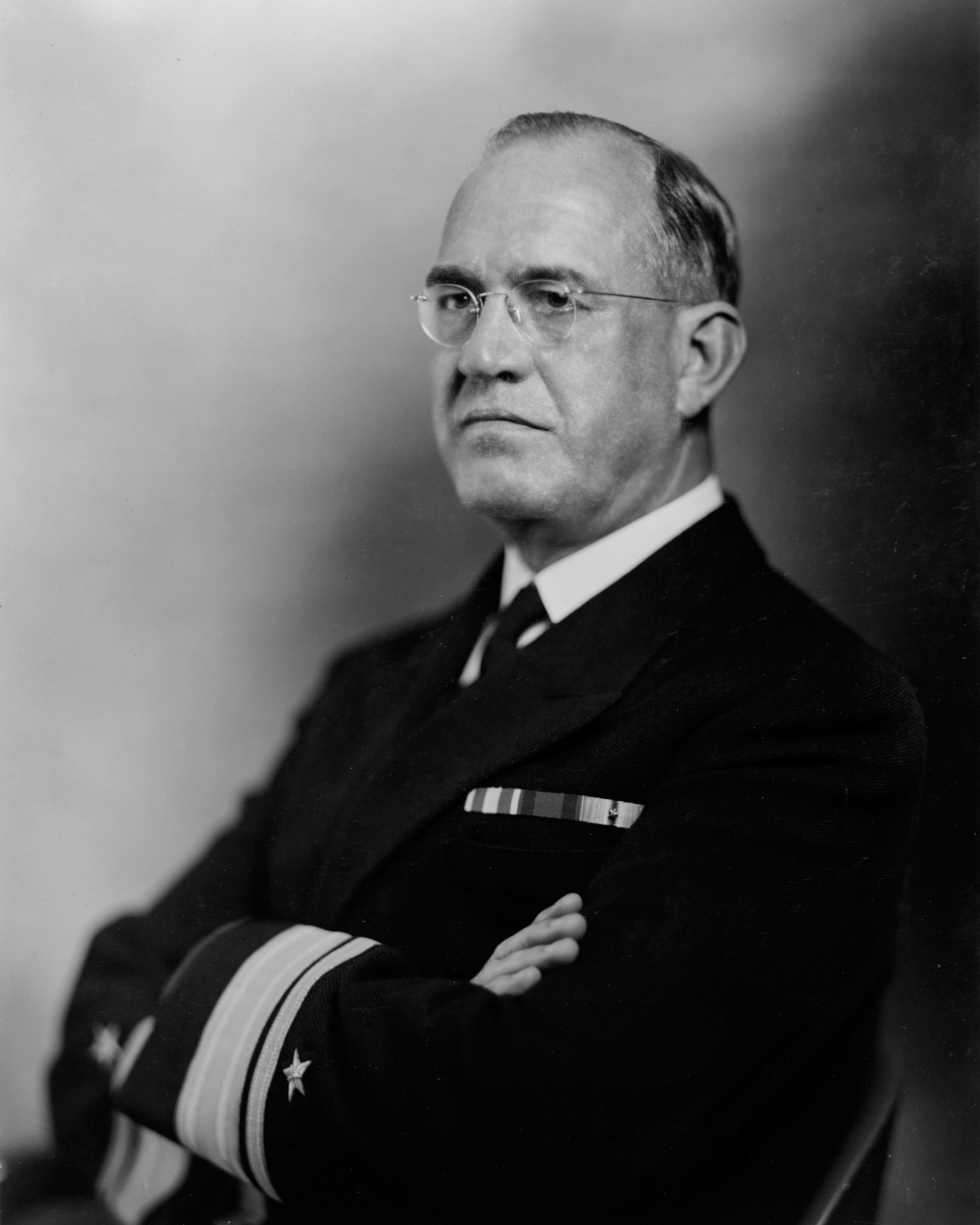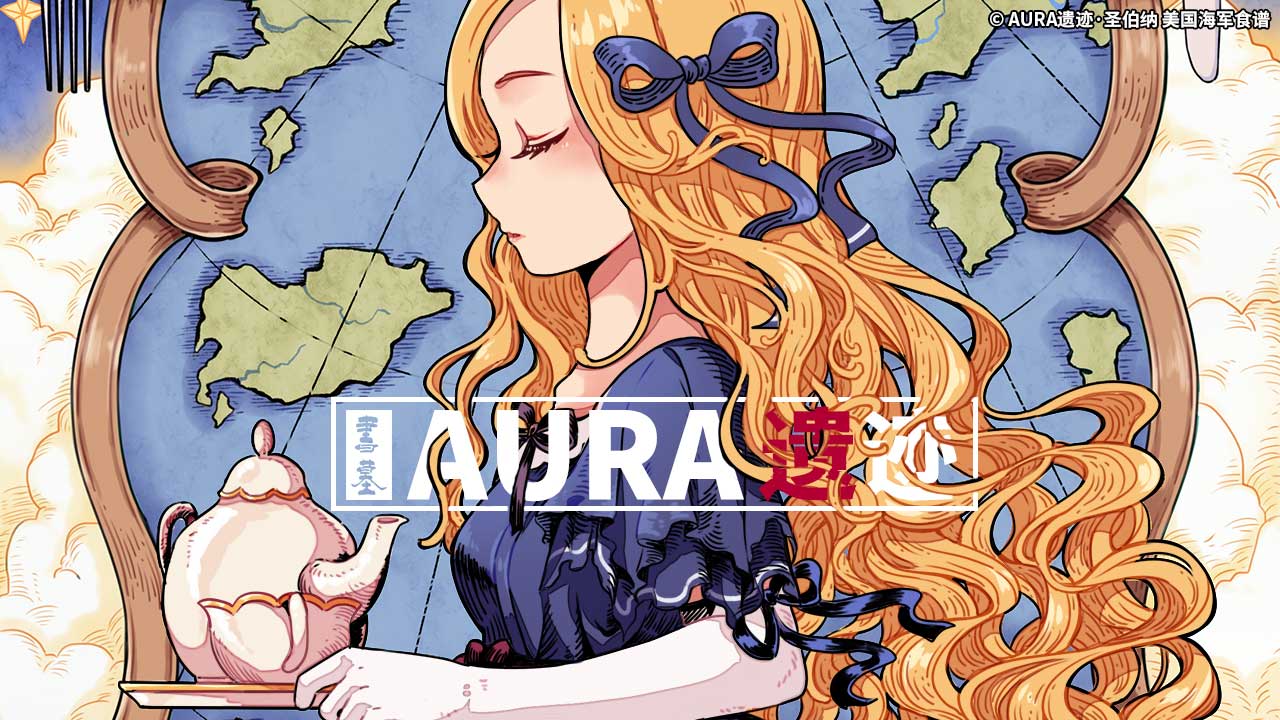
People forget sometimes that I got interested in KanColle because I set out to combat what I perceived to be some rather curious historical revisionism on the Japanese end. Sadly, we’re now seeing a rise in similar types of opinions popularized by members of a particular political persuasion.
I am, of course, talking about the Pearl Harbor conspiracy theory. In our days of increasing political polarization, there seems to be significant efforts on both sides of the political spectrum (not just the far right, but also the far left) to revise our history into something that’s more amenable to their views. While the far left progressives combs over US “flaws” with a fine-toothed comb looking for anything to justify their twisted and authoritarian views of social “justice,” far right authoritarians (you know who I’m talking about. The unironic “Hitler did nothing wrong” types) inevitably bring everything to this particular event.
They’d be right at home with the Japanese ultra-nationalists. This is the tip of the iceberg. But, to sum things up, in their worldview, Pearl Harbor was an inside job. Roosevelt had advanced warning, or, in certain cases, orchestrated the attack himself. Roosevelt intentionally withheld information to commanders of the US fleet (including Kimmel), and through a series of carefully cultivated designs, provoked Japan into war so he could take the ebilllllllll American empire to fight against those oh so bravely heroic Aryan ubermensch –
Let me just stop there real quick. Before you go anywhere, Hitler declared war on the US first. That by itself is sufficient to sink any arguments of conspiracy on America’s part. Just think. Germany obviously did not want to go to war against the US. The US joining the war would be bad for the Axis powers. So if Roosevelt was in a grand conspiracy to attack the Axis, how, then, did Germany manage to get the drop on this thing first?
Especially if these people are claiming that Germany did nothing wrong?
Okay, back to Japan.
On the surface, the conspiracy theory appears to have some merit. Specifically, the observation that nobody in America saw it coming does seem a little odd. It does seem incredible that American high command was caught completely unprepared.
Here, and the reason for my titling of this article, is where we must assign Japan a lot of credit. Japanese military planners did an excellent job in the deception. What’s more, they were very lucky in the execution of the plan. To add more to this, we were caught under-prepared for such an event despite having had a decade or more to prepare for it. Lastly, there were significant shortcomings in the US side, and so we dun goof’d, to put it colloquially.
So, let’s get started, and let’s address some common misconceptions about the Pearl Harbor attack.
Roosevelt conspired against the Japanese because Japanese codes are already broken by the time Pearl Harbor happened!
We talked a little about codebreaking here, and it’s hard business. There are a couple of reports here and there from the government stating that some part of the Japanese code was being “read.” However, to suggest that the US was actively reading Japanese intelligence is grossly overstating our own capabilities.
For starters, the Japanese naval code was mostly uncracked to the best of our knowledge. A closer inspection of the Navy’s own codebreakers show that only about 8% of the fifty-thousand some messages from the Japanese navy (Code AN-1) could be deciphered. Our diplomatic codebreaking efforts on Japan’s high level diplomatic code (Purple) were better, but we were still unable to decipher more than half of what’s available so far.
What’s more, Japan took great pains to protect the secrecy of the Pearl Harbor attack. If it seems incredible that no leaks occurred, that’s because virtually nobody in the Japanese side knew about it either. The extent of the knowledge of the Pearl Harbor operation was limited to the very highest echelons of the Combined Fleet. The “civilian” cabinet was unaware, as is the Imperial Army. In fact, the latest sources we have suggest that the Army was only informed around late November – while certain army officers had been aware of the plan as early as maybe September, the extent of the attack was not provided until a week prior to the Pearl Harbor attack itself.
To put things into perspective, Yamamoto issued a general top secret document pertaining to Japanese naval operations during the opening stages of the war in late Autumn. This document, termed Operations Order no. 1, was sent out on November 5th.
There was not a word about the Pearl Harbor operation in this document.
Most of the Japanese naval commander had no idea this was going on until November 17th. Most of the naval crew had no idea either until a week later. If we were going to grade the Japanese on their operational secrecy, they’d get a solid A. The encrypted operational messages did not mention Pearl Harbor at all. There wasn’t anything to figure out unlike the Midway codebreaking where we were able to figure out that they were aiming for Midway.
What’s more, there were several factors at stake. The first is that our efforts were focused on East Asia. We had (correctly) guessed that Japan was going to launch an attack on some part of East Asia – most likely the Philippines. Imperial Army movements certainly seemed to suggest that this was the case, and we had always assumed that the Japanese fleet would not be so bold as to challenge us directly at Pearl Harbor. A decade of studying Japanese naval doctrine basically gave us a rather deterministic view of what Japanese naval operations would be. The Decisive Battle was meant to take place after they’d have worn our fleet down through attrition due to our numeral superiority. Only with the benefit of hindsight would we be able to say that yeah, we should have seen a surprise attack like this coming.
Secondly, there is an active component of deceitfulness in Japanese policymaking. I’m not faulting them for it – after all, war is war. However, it’s now becoming increasingly clear that many active attempts at deception were made. For instance, a widely held belief post-war is that the Japanese diplomats had no idea of the events of Pearl Harbor or its planning, and that due to some accident or another, the US did not receive a declaration of war until well after the attack has already been carried out. We now have more and more evidence to suggest that this isn’t the case.
(I do want to point out that it is plausible that the Japanese diplomats had no idea. Sources here actually contradict one another. Some suggest that they were not informed for plans of war at all. Others suggest that the communication was unclear. Whatever the case may we, we’ll have to wait for more details to come out on the Japanese side.)
I read in __________ that _________(fishing boat, plane, etc) saw the Japanese fleet coming or heard Japanese radio! However, Roosevelt canned the intel and didn’t allow them to transmit!
Roosevelt isn’t some all-powerful demigod here. It’s highly unlikely that the President directly ordered any such information to be interdicted. We can debunk source by source if you’re interested.
However, let me say a few things in general about the claim.
Firstly, communication equipment is notoriously unreliable during this time.
Secondly, this isn’t a video game. It takes time for people to reach proper decisions and to decide if a response is warranted. There’s no recall button and units take time to physically travel. You make the wrong call and you’re going to leave the entire country exposed to attack.
Thirdly, the Japanese did a very good job with concealment. Outside of very isolated incidences, there appears to be no real eyewitness reports during the time there. They took so much care at operational secrecy that some say that the radio operators were instructed to stay on shore along with the equipment itself.
Then there’s the operation itself. Japan took great pains to conceal the movement of their ships from our own intelligence and diplomats. Foreign ships were largely successfully (barring one or two exceptions) steered away from Kyushu. The dockyards are barred from the public eye. The papers are completely censored. It got to the point where our own diplomats warned that we could no longer expect useful information from the Embassy, in terms of Japanese motives.
Fourthly, and there’s the shock value. People were expecting an attack in Asia. The Philippines, definitely. Hawaii was not something that we had a particularly strong sense for. In fact, it caught us completely blindsided – as I’ll explain in the next part.
So, in cases where contact is made by Allied forces (and we have examples such as the then-green Enterprise air crew immediately searching for the Japanese fleet), it’s less that Roosevelt conspired against America. Hardly. It’s more like that there wasn’t much you could do at that point.
If we knew that war with Japan is coming, how in the world can we not have thought they would attack Pearl? You cannot simply say that we underestimated the enemy – there has to be more!
Sorry to say, but based on the information we have on hand, there does appear to be a significant “we effed up” aspect to the Pearl Harbor attack. As I mentioned earlier, the Japanese secrecy was excellent and at this time, they do have a very well trained carrier force. So, this was already a very capable opponent.
What’s more, we thought we understood the Japanese. I already mentioned the Decisive Battle doctrine calling for a climatic engagement of a post-attrition and weakened US fleet. What’s more, in early January, our intelligence and analysts picked up Japan’s plan to attack Asia. We’ve noticed the build up. We prepared accordingly. We simply didn’t catch on to the fact that something else is up.
So, through deception on all fronts – diplomacy, media, and of course, radio chatter, Japan did its best to trick our intelligence. Japan had known that Allied personnel were listening on their radio chatter as early as March of 1941 during the French Indochina incidents. They actually pulled a very convincing trick involving routine carrier drills around mid-November.
Specifically, Japanese radio intentionally sent out a bunch of “chatter” that looked like exactly what we were used to hearing on. While radio traffic of other fleet units have increased substantially, the ones involving the carriers didn’t. The highly limited nature of these transmissions reinforced to us what we thought we had known: that the Japanese carriers were still at home training.
At the time, Japan has already managed to monitor U.S. Pacific fleet communications. Japanese merchants have been discreetly observing our fleet exercises, and they had a decently good bearing on our call-signs and actual radio chatter. In fact, this was how they confirmed that we didn’t think Pearl would be under threat. They learned that we had been largely sending our scouts down south of Hawaii as opposed to the north.
While they had no luck breaking our military codes, we only learned recently that they were able to listen on to pretty much all of our higher-level diplomatic dispatches. Here, again, the advantage is with Japan.
What’s more, remember that there are Japanese agents active all over the US. Hawaii has Takeo Yoshikawa. While he wasn’t particularly fast (and we did do a good job of maintaining secrecy), he had also observed the holes in our own reconnaissance.
Taken altogether, if you were Admiral Kimmel, you would have likely reached the same type of conclusion. Despite the warnings given and the possibility of Pearl Harbor being attacked, you do not see a very large chance of that happening. To the best of your knowledge, based on everything you’ve known, the only thing that could threaten the Battle Fleet was currently sitting at home, presumably to be applied to Japan’s attack on Asia.
What’s more (yes, even more!), many of the more cautionary pieces of intelligence never got forwarded to Kimmel. Kimmel himself did not communicate well with the Army, who are technically in charge of Pearl’s defense. We had a lot of good equipment and new tech, but our men weren’t very skilled at using them. Radar, despite having been installed, was not heavily staffed. Many of our AA guns had munitions in storage lockers. Planes were parked in close “storage” formations.
All these point to our own carelessness and overconfidence. For those that are quick to criticize Kimmel’s incompetence, I have a simple question to ask:
What about MacArthur? He had far more intelligence than Kimmel had access to. Yet MacArthur also caught completely unprepared by the Japanese attack. In fact, he was driven from the Philippines while the US as well as the Allies suffered defeat after defeat in these early days.
Roosevelt fired admirals who warned him about Japan’s incoming attacks!
Okay. This one you can sort of work out a conspiracy angle for if you squinted really hard.

It was Richardson’s belief – and indeed generally supported by the Navy – that the Fleet should never be berthed inside Pearl Harbor where it would be a mark for attack. This was particularly true in such troubled times when the airways of the East were hot with rumors of approaching conflict. What is more, Richardson held the belief that Pearl Harbor was the logical first point of attack for the Japanese High Command, wedded as it was to the theory of undeclared and surprise warfare. For ten years the U.S. Navy held “attacks” on the Army defenses at Pearl Harbor, and were always successful. Defending the base was rather hopeless, in his mind.
Richardson is one of our best experts on the Japanese naval forces at the time. Yes, it is absolutely true that he thought Pearl is vulnerable to an attack. I do agree that firing him because of personal (Roosevelt strongly disliked the guy) reasons is petty and political. However, Richardson being removed from CinCUS has less to do with conspiracy and more so with his open rejection of Roosevelt’s own opinions. Namely, Richardson believed that we were inadequately prepared in a war against Japan. He tried to meet with the President twice, and wrote to everyone who would listen warning us of our inadequacy in preparedness. With stuff like this.
The senior officers of the Navy do not have the trust and confidence in the civilian leadership of this country that is essential for the successful prosecution of a war in the Pacific.
From Roosevelt’s perspective, this just isn’t conductive to the services at large. What’s more, remember that Roosevelt was seeking re-election to the White House. You just can’t have a guy going to Congress and trash-talking (truthfully or not) your administration like that.
So, Richardson was fired. The reason here is political. It’d be a very long stretch to suggest that this is part of some grand conspiracy when the easier explanation is that Roosevelt didn’t want his re-election jeopardized.
American carriers were not in port at the time! Roosevelt knew. That’s why they weren’t.
Oh boy. One of the favorite talking points of the Japanese right-wing I sometimes encounter, now being picked up by fringe elements of the alt-right. How shameful. Let’s look at where our carriers were.
Yorktown, Ranger, Hornet, and Wasp were in the Atlantic.
Saratoga was under refit.
Lexington was off ferrying planes in anticipation of the Japanese attack in Asia.
Enterprise was doing the same thing. In fact, Enterprise was supposed to be back in port, but a freak weather accident delayed her by a day, to December 7th rather than 6th. In fact, she was headed back right as they hit Pearl.
So Roosevelt can control the weather, too? Because that’d be the only way to explain this from the conspiracy angle.
(Since this is getting a little long, I think this is a good place to end. Entire books have been written on the subject. It’d be incredibly easy to pick a few up and thumb through them. In fact, the professionals do a far better job than a hobbyist like me could.
That being said, however, I think it is important for us to look at these events for what they are. Claiming conspiracy diminishes both the lives lost in the event and the competence of the soldiers actually fighting the war.
As for ourselves? I’ve really got two words.
We goofed.

You want three?
We goofed badly. Now, for this particular operation, Japan goofed up a lot less than we did. That’s a huge factor in why they were successful.
Japan may have quickly fallen apart in a few years, but at this moment, on December 7th 1941, they were ascendant. Powerful. Capable. Competent. A very dangerous opponent whose accomplishments do deserve due credit.
See ya next time. 🙂
